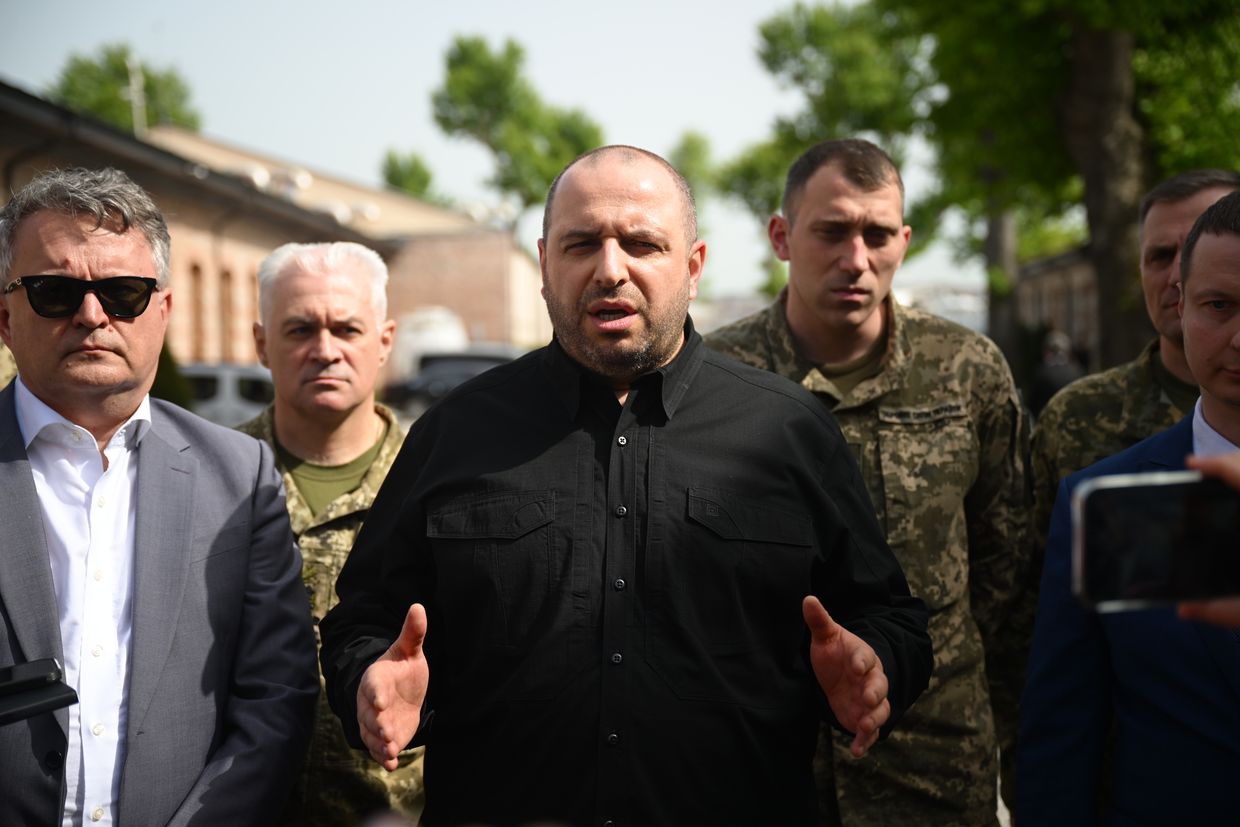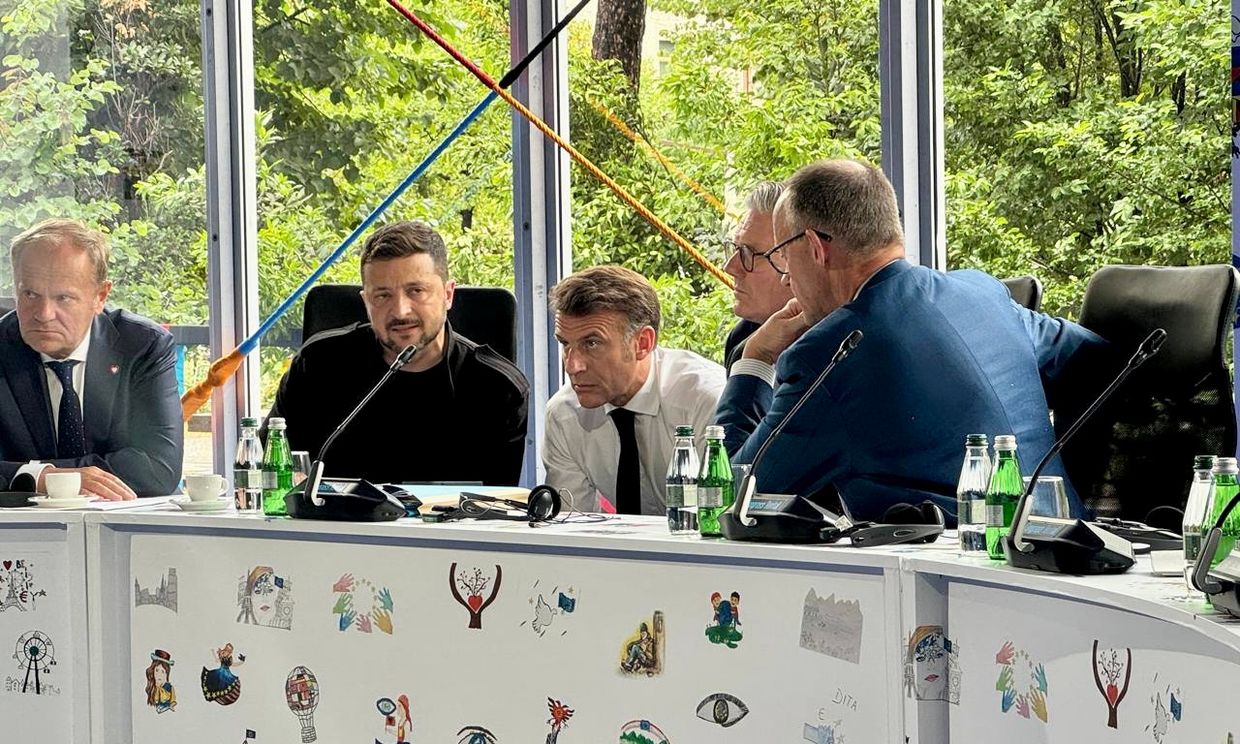'It's all a farce' — Ukrainian soldiers on Russia's 'smokescreen' peace talks in Istanbul

(Editor’s note: The soldiers shown are not the individuals who provided the comments) Ukrainian infantrymen from the 68th Brigade undergo training in tactical combat medicine in Donetsk Oblast, Ukraine, on May 12, 2025. (Jose Colon / Anadolu via Getty Images)
The first direct peace talks in years between Kyiv and Moscow ended on May 16 with Russia once again rejecting an unconditional 30-day ceasefire. In turn, Russia demanded that Ukrainian troops leave four of the country's regions, which Moscow partly controls.
Such a demand is a non-starter for Ukraine.
Ukrainian soldiers say that they didn't expect much else, as Russia keeps slowly advancing in some parts of the front and is poised to take more territory before settling with what it already controls.
"Personally, I think it's all a farce," Ihor, a soldier serving since 2020 and currently fighting in the east of Ukraine, told the Kyiv Independent. He's identified by his first name as he wasn't authorised to speak to the press.
"Even if the full-fledged negotiations take place, even if they agree on something, and even if 30 days of 'peace' really happen, it's all just a smokescreen," Ihor said.
"The enemy does not need negotiations, because it is managing to advance," he added. "Even with this human toll, the enemy manages to build up reserves, both human and arms, and expand (military) production, which are also not signs that someone is planning to stop."
Elusive ceasefire
Ukraine continues to insist on a ceasefire, supported by the U.S. and Europe, saying that a halt to active warfare must come before any real peace talks are possible.
Russia has so far rejected a truce four times — on March 11, March 25, May 11 and the most recent one on May 16 in Istanbul.
"Putin is laughing at (U.S. President Donald) Trump in front of the whole world."
A source in the President's Office briefed on the talks told the Kyiv Independent that Moscow's delegation insisted that Ukraine retreat from Donetsk, Luhansk, Zaporizhzhia, and Kherson oblasts, despite Russia not controlling any of them in their entirety.
Over half a dozen Ukrainian soldiers who spoke to the Kyiv Independent about the talks shared a similar opinion — the battlefield situation will have a real influence on peace prospects, not talks in Istanbul.

"Putin is laughing at (U.S. President Donald) Trump in front of the whole world," said a Ukrainian infantryman who goes by the callsign Mamai. "Based on the results of three years of the all-out war, in Putin's eyes all the leaders of the Western world are weaklings and suckers."
A Ukrainian drone operator, who goes by the callsign Architect, told the Kyiv Independent that "It's a pity that our side has to participate in this, and the rest of the civilized world lacks the courage to respond to the aggressor properly."
Soldiers said that despite the fatigue of more than three years of brutal fighting, they are determined to continue.
"There is no point in negotiating. The only thing (Russians) understand is force," said Bart, a Special Forces sniper fighting near Pokrovsk.
"We will continue to destroy them." Petro Kuzyk, a battalion commander with the National Guard, told the Kyiv Independent.
Prisoner swap
Though the main objective of the talks, a ceasefire, was not agreed upon, Defense Minister Rustem Umerov told reporters after the talks that Russia and Ukraine have agreed to a prisoners of war (POWs) exchange on a 1,000-for-1,000 basis in the near future.
If it takes place, it will be by far the biggest prisoner exchange between two countries and a step towards the "all for all" prisoner exchange that Ukraine insisted was necessary for a lasting peace.
Lieutenant Colonel Bohdan Krotevych, former commander of Ukraine's Azov Brigade and one of the most vocal critics of the country's military leadership, praised Zelensky's clear show of interest in the talks "despite Russia's (ongoing) sabotage."

"The Russian delegation tried to take a position where they could dictate terms," Krotevych told the Kyiv Independent. "But as far as I know, our delegation, led by Defense Minister Rustem Umerov, quickly put them in their place."
Krotevych said that he fully supports the delegation's position that returning Ukrainian POWs is one of the key priorities.
If the 1,000-on-1,000 POWs exchange that Ukraine and Russia agreed to will take place, it could help achieve further progress in the peace talks, such as a meeting between Zelensky and Putin, mediated by Trump, Krotevych said.
"If the Russian delegation fails to confirm its position on the prisoner exchange, it would mean that all negotiations are just another one of Putin's performances meant to stall the process," Krotevych added.













